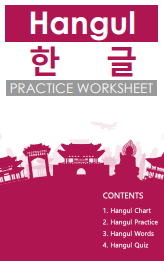There are a few ways you can say are you crazy in Korean.
And in this guide…
Yyou will learn 13+ ways to say are you crazy in Korean. All kinds of variations. Great if you want to use some angry Korean phrases on someone who’s bothering you.
So, if you’re NOT crazy, keep on reading.

1. 미쳤어요?/ 돌었어요?
- Michyeoss-eoyo?/ Dorasseo-yo?
- Are you crazy?/ Have you gone mad?
This is a classic Korean way to say are you crazy in Korean… which almost every hallyu fan knows of. Both the phrases are used to express shock, anger or confusion at someone’s actions.
The informal version is 미쳤어?/ 돌았어?.
Example:
- 학교 안갔어? 너 미쳤어?!
- Hag-kyo angasseo? Neo michyeoss-eo?
- You missed school? Are you crazy?
2. 어머 미쳤나봐요/ 미친거 아니에요?
- Eomo michyeoss-nabwayo/ michingeo ani-eyo?
- Oh my you must be crazy/ Are you crazy?
This is another fun way to say are you crazy in Korean.
However…
Although the same root word for going crazy (미치다) is used here too, this has a completely different intention — crazy in a good way. So, you can use them to express amusement or surprise at an unexpected action.
The informal version is 미쳤나봐/ 미친거 아니야?.
Example:
- 걔가 집 사준다고? 미친거 아니야?
- Gyaega jib sajundago? Michingeo aniya?
- He said he’d buy us a house? Is he crazy?
3. 이게 뭐야?
- Ige mwoya?
- What is this?
The higher the tone, the bigger the shock. Even though the same words are used for a simple ‘what is this?’ question, Koreans use it to express great shock or confusion and it is often heard in repetitive exclamations of shock. The listed phrase is informal.
Example:
- 내 차! 이게 뭐야, 이게 뭐야!
- Nae cha! Ige mwoya, ige mwoya!
- Nae cha! What is this, what is this?
4. 그게 말이라고 해요?/ 그게 말이 되요?
- Geuge mari-rago hae-yo?/ Geuge mari doe-yo?
- Does that even make sense?
Literally translating to ‘You call those words?’, these are interesting expressions which you can use to adress incidents and situations that do not make sense to you. That is, when you come across impossible and strange events or obvious lies.
The informal version is 그게 말이라고 해?/ 그게 말이되?
Example:
- 10분 걸린다고? 그게 말이 되냐?
- 10 bun geollindago? Geuge mari doe-nya?
- It takes 10 minutes? Does that even make sense?
5. 이게 도대체 무슨 일이야?
- Ige dodaeche museun iriya?
- What the hell is going on?
Whether you are worried and concerned or shocked and clueless, this is how you can express yourself. The listed phrase is informal.
Example:
- 나 무서워. 이게 도대체 무슨 일이야 진짜!
- Na museo-wo. Ige dodaeche museun iriya jinjja!
- I’m scared. What the hell is going on seriously!
6. 뭐라는거야?/ 뭔 소리야?
- Mworaneun-geoya? Mwon soriya?
- What are you saying?
This sentence can be used in various contexts, just like a lot of Korean phrases: when you don’t believe someone, when you don’t understand someone or when you want to disregard someone’s words. The listed phrases are informal.
Example:
- 뭐라는거야? 내가 안갔어.
- Mworaneun-geoya? Naega angasseo
- What are you saying? I didn’t go.
7. 그게 무슨 개똥 같은 소리야?/ 개똥 같은 소리 하고 있네
- Geuge museun gaettong gateun soriya?/ Gaettong gateun sori hago itne
- What kind of bullshit is that?/ That’s some bullshit
Well the translation explains the meaning of the phrases quite clearly, except it says ‘dog shit’ in the Korean version. This phrase is definitely disrespectful, despite being commonly used, so try not to use it improperly. The listed phrases are informal.
Example:
- 이유가 없어? 그게 무슨 개똥 같은 소리야?
- Iyuga eobseo? Geuge museun gaettong gateun soriya?
- There’s no reason? What kind of bullshit is that?
8. 지금 뭐하자는 거예요?
- Jigeum mwo-hajaneun geoya?
- What are you trying to do?
This phrase is not a casual ‘what are you doing?’ question. It is selectively used in situations where you confront someone about their plottings/plans. Because if someone subtly threatens you or gives a warning hint, you surely want to question their intentions. This is how you can do it.
The informal version is 지금 뭐하자는 거야?
Example:
- 내가 다 들었어. 지금 뭐하자는 거니?
- Naega da deureosseo. Jigeum mwo-hajaneun geoni?
- I heard everything. What are you trying to do?
9. 뭔 지랄이야?/ 지랄하네
- Mwon jirariya?/ Jiral-hane
- What the hell is this?/ You’re screwing around
The first phrase is an impolite and harsh way of questioning an act or situation. The second one is a more assertive expression for any actions you consider senseless/unreasonable. The listed phrases are informal.
Example:
- 습관이라고? 지랄하네.
Seubgwan-i-rago? Jiral-hane
That’s a habit? You’re screwing around.
10. 말같지도 않는 소리 하지마/ 말이 되는 소리를 해
- Mal gat-jido anheun sori hajima/ Mari doeneun sori-reul hae
Stop the nonsense
Again, these phrases literally mean ‘Stop speaking what doesn’t even sound like words’ and ‘Speak in words’, but you can use them to express disapproval or shock. The listed phrases are informal.
Example:
- 그저 3십만원? 말같지도 도 않은 소리 하고 있네.
- Geujeo 3 shib man won? Mal gat-jido anheun sori hago itne
- Just ₩300,000? Stop the nonsense.
11. 이게 진짜!
- Ige jinjja!
- Seriously!
If you’re going bananas because of your annoying sibling, this is how you would ideally express your frustrations regarding them in Korean. The listed phrase is informal.
Example:
- 이게 진짜 확! 너 좀 맞아야 돼!
- Ige jinjja hwak! Neo jom majaya-dwae!
- Seriously this little! You need to get a beating!
12. 왜이래?/ 왜저래?
- Wae irae?/ Wae jeorae?
What’s wrong with you?
When you’re witnessing unusual or strange behaviour from your friends or family, you can confront them with this question. You can also use it to address someone’s absurd actions. The listed phrases are informal.
Example:
- 쟤 갑자기 왜 저래?
- Jyae gabchagi wae jeorae?
- What’s wrong with him all of a sudden?
13. 어이가 없다
- Eo-i-ga eobtda
I’m speechless
You can use this phrase to express utter shock, but usually in a displeasing way. It is also a part of a Korean joke as it sounds the same as 오이가 없다 (there are no cucumbers).
Example:
- 도둑이라니? 참 나, 정말 어이가 없네!
- Dodk-i-rani? Cham na, jeongmal eo-i-ga eomne!
- A thief? Oh my, I’m actually speechless!
Are You Crazy in Korean Conclusion
Now you know how to say are you crazy, what the heck, and much more.
Wasn’t hard, right?
Which was your favorite phrase? Leave a comment.
These are really fun phrases to know, just like bad Korean words and angry Korean phrases.
– The Main Junkie
